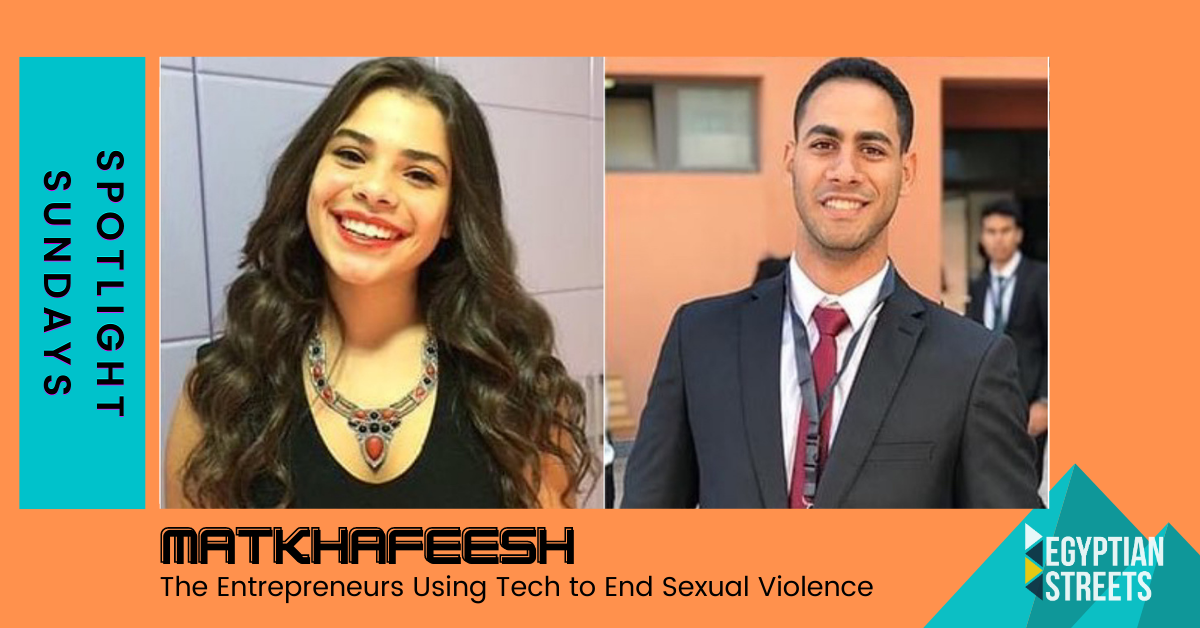The first thing that comes to mind when thinking about STEM (science, technology, engineering and mathematics) is how unwelcoming and inhospitable those fields have historically been to women. From a lack of representation to a well documented gender pay gap, all the way to exclusionary, poorly designed and downright offensive tech products, women haven’t always had a fair shake in STEM. In recent years, however, women from all walks of life have been wielding the power of tech to raise awareness about gender-based discrimination and violence. In Egypt, a social movement to end sexual violence against women has swept the country’s digital sphere, stirring important conversations and discussions about gender equality and sending shock waves across Egyptian society. Using tech to put sexual abusers on notice are Salma Medhat Shaaban and Ahmed Hisham Rihan, the computer science graduates behind anti-sexual harassment app Matkhafeesh. “We have been working on it for over six months. We founded it when we saw that women and girls were starting to speak up on social media and [taking steps] to raise awareness within their own circles. We really believe in the cause and we wanted to…
The Egyptian Entrepreneurs Using Feminist Tech to End Sexual Harassment
April 4, 2021



